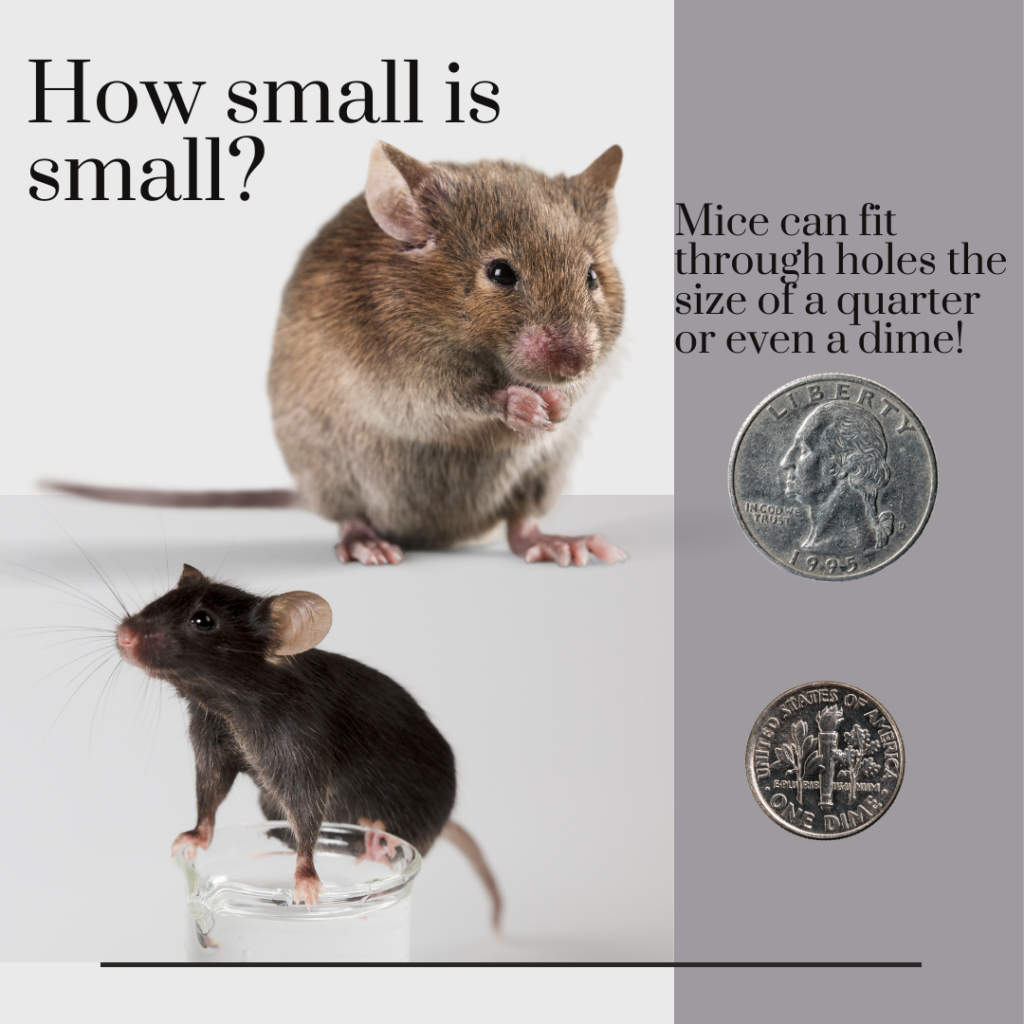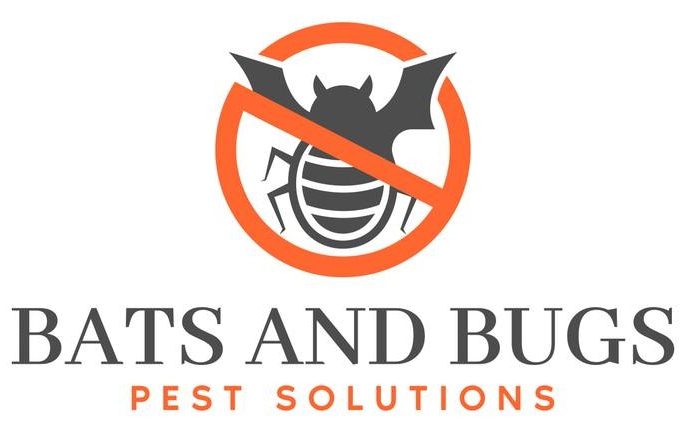Mouse and Rat Control in Des Moines: Quick Facts and Pro Tips for Keeping Them Out
Before we dive into the details about rodent control and keeping your home free from mice and rats, here are a few fascinating tidbits about mice from facts.net:
- Rapid Breeders: Did you know that a single field mouse can have several litters a year, with up to 8 pups in each? That’s a lot of mice in a short time!
- Endless Gnawing: Mice are notorious for gnawing, and it’s no wonder— their teeth grow 0.3 mm every day, requiring constant chewing to keep them in check.
- Not So Sharp Sight: While mice might not win any awards for eyesight, especially in bright light, their other senses are finely tuned to help them navigate and survive.
Rodent Control in the Des Moines area: Tips for Detection and Prevention.
As the weather cools down, rodents like mice and rats start seeking warmth and food, often finding their way into our homes. These small creatures may seem harmless but can cause significant damage and health risks if not dealt with promptly. In this blog, we’ll discuss how mice are remarkably adept at getting into houses, how to identify if mice or rats are in your home, and effective strategies to keep them out. When left unabated, mice will chew on wires, insulation, building materials, furniture, paper, clothing, books, and more. They can also chew through soft concrete, drywall, rubber, plastic pipes, aluminum, and even gas lines, causing the cost of one thing to lead to multiple other costs in the long run. Additionally, mice can carry fleas, mites, and diseases like hantavirus, leptospirosis, lymphocytic choriomeningitis, plague, typhus, and rat-bite fever.
It can be serious
Diseases like the hantavirus are spread to humans from wild rodents, especially mice and rats, through their urine, saliva, and feces. The virus can be released into the air in confined spaces when rodents or people disturb it, such as by sweeping or vacuuming. People can also be exposed by touching or eating contaminated food from rodents or by coming into direct contact with the virus through mucous membranes or cutaneous injuries. Leptospirosis is also significant, as it’s a bacterial infection that can be transmitted through contact with water contaminated by animal urine, meaning, even if you wipe down countertops, you may want to spray a little bleach or additional antibacterial spray if you’ve noticed signs of mice.
Sneaky little house invaders
 Mice are remarkably skilled at sneaking into homes by squeezing through tiny openings, and likely much smaller than you might expect! Due to their flexible skeletal structure, they can compress their bodies to fit through gaps as small as a dime or a quarter. This ability makes keeping them out of homes and buildings particularly challenging. They will find and use even the smallest cracks and crevices to gain entry in search of food, warmth, and shelter.
Mice are remarkably skilled at sneaking into homes by squeezing through tiny openings, and likely much smaller than you might expect! Due to their flexible skeletal structure, they can compress their bodies to fit through gaps as small as a dime or a quarter. This ability makes keeping them out of homes and buildings particularly challenging. They will find and use even the smallest cracks and crevices to gain entry in search of food, warmth, and shelter.
It’s crucial to seal any potential entry points with materials like steel wool or caulking to prevent infestations. Mice are also excellent climbers and they can easily climb vertical surfaces, including walls and pipes.
This ability allows them to access entry points that might be above ground level, like walls and pipes. Mice, along with other rodents, bugs, and pests, can use household dryer vents as a pathway to get inside your home. Most homes with a laundry dryer inside have vents on the outside where the heat escapes. These pests can easily get inside if the outside vent is uncovered or damaged! Understanding their capabilities can help you to use more effective pest control measures.

What are the Signs?
Mice are sneaky! But they’re also squeaky! Typically, they are out at night, so that will be the time you will usually hear them either in your walls or going through things in your cabinets, etc. You’ll find out where they are most often treading, leaving urine stains and mouse droppings behind the next day. In the morning, you might notice droppings, gnaw marks on food packaging, or shredded paper in cabinets or behind appliances. These clues suggest that mice have been active, particularly in the kitchen, where they search for food.
What You Can/Could/Should Do Now
Here are four tips on things you can and should do now to prevent mice and rats from invading!
- Keep Food Secure: Store food in airtight containers and immediately clean up crumbs and spills. Don’t leave pet food out overnight; ensure tightly sealed garbage cans. Rodents are less likely to stick around if they can’t find easy food sources.
- Seal Entry Points: To keep things sealed, seal everything from dryer vents to pet doors and cracks around your foundation. Inspect your home for potential entry points and seal them up. Use materials like steel wool, caulk, or hardware cloth to close off gaps around doors, windows, utility lines, and vents. Pay special attention to the foundation and roofline.
- Repellants and Traps: Want to try a natural repellant? Plant mint, eucalyptus, or wormwood around the perimeter of your home to deter rodents with their smell. Ever think about buying one of those ultrasonic pest repellers? According to this article in Forbes Home, and our personal experience, we don’t think they are very effective. That leaves traps, using traps depends on your home dynamics. If you have children or pets, we obviously DO NOT suggest using poisons. Electronic traps are the most humane, but snap traps, while messy, have been very effective for a long, long time. (1879, to be exact!)
- Keep it clean and clear: We know it’s no fun, but regular cleaning helps prevent rodents from finding food in your trash or other areas. Keeping leaf piles and other debris from piling up outside also prevents hiding places near your home from making it more easily accessible.
Be proactive!
Keeping your home free of mice and rats is crucial for maintaining a safe and healthy living environment. By understanding how these rodents operate, you can take steps to prevent them from coming into your space! However, also knowing the signs of their presence, and implementing effective removal techniques as quickly as possible can be all that is needed to manage the problem. Remember, vigilance and prompt action are the key to keeping these pests at bay. Whether you’re sealing up entry points or consulting professionals like our Bats and Bugs Pest Solutions technicians, every step you take brings you closer to a rodent-free home. Don’t wait for the problem to escalate—start protecting your home today.
Contact us for Rodent Removal Services
If you suspect a rodent problem or want to protect your home, don’t hesitate to call our experienced pest control team. We are based in Urbandale, Iowa, and have over 25 years of experience; we’re here to provide expert solutions tailored to your needs. Contact us today to schedule an inspection and take the first step towards a rodent-free home.

